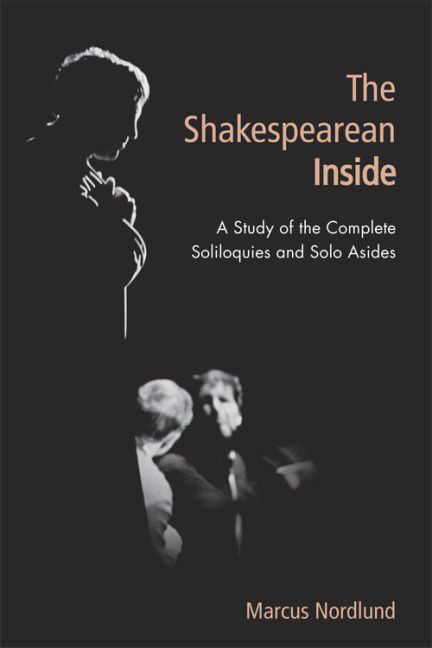Appendix 1 - General Coding Principles
Published online by Cambridge University Press: 08 August 2017
Summary
The overriding purpose behind the construction of the Shakespearean Inside Database (SID) has been to uncover general patterns, and exceptions from these patterns, in Shakespeare's dramatic practice. In the pages that follow I will account for the theoretical and methodological principles behind the coding. As we shall see, the main challenge has been to find the right level of complexity; the codes (or ‘nodes’ in ‘NVivo speak’) must be sufficiently complex to generate interesting data, but not so complex that the coding becomes controversial.
A project of this kind is bound to meet with two basic objections, the first of which has language-philosophical roots. If – as so many postmodern theorists have kept reminding us over the years – interpretation ‘goes all the way down’, then surely any quantitative approach to literary interpretation is just a scientistic dream of objectivity? How can it possibly escape the slippery nature of language? The same complaint comes in a specifically historical and dramatic version. How can we hope to quantify anything of real literary interest in Shakespeare – except perhaps the most rudimentary linguistic elements – when even basic categories like act and scene divisions, types of speech, genres, and even the scholarly texts themselves turn out to be pragmatic compromises or modern impositions upon fluid early modern practices?
Yes, in a fundamental sense we are all toiling in the shadow of the Tower of Babel. But the most appropriate response to this insight is neither to formulate an escape plan from the prison-house of language nor to iterate how trapped we all are. More than a decade ago, Susan Haack noted how fully scholars in the humanities had succumbed to a stance that Anthony Gottlieb dubbed the Higher Dismissiveness:
again and again true, fallibilist premises are transmuted into false, cynical conclusions: what is accepted as known fact is often enough no such thing, therefore the concept of known fact is ideological humbug; one's judgment of the worth of evidence depends on one's background beliefs, therefore there are no objective standards of evidential quality; science isn't sacred, therefore it must be a kind of confidence trick; etc., etc.
- Type
- Chapter
- Information
- The Shakespearean InsideA Study of the Complete Soliloquies and Solo Asides, pp. 202 - 209Publisher: Edinburgh University PressPrint publication year: 2017



